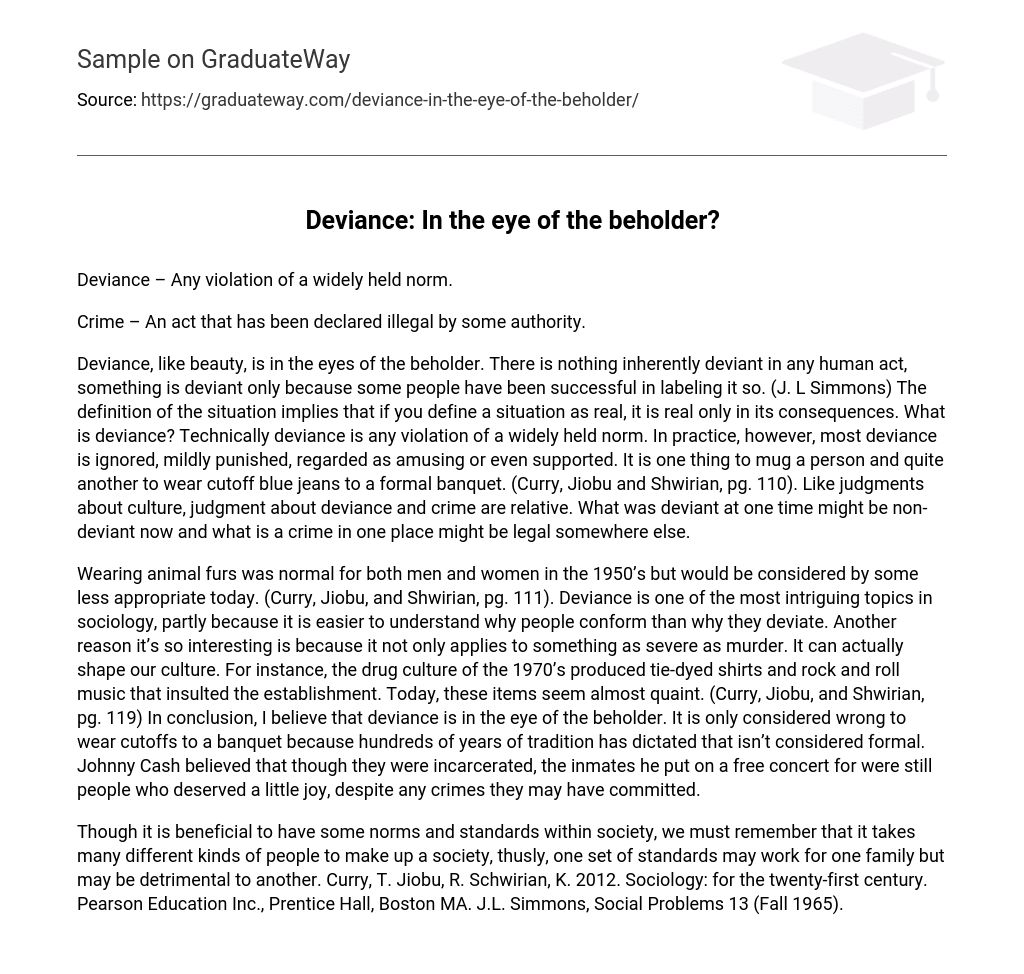Deviance – Any violation of a widely held norm.
Crime – An act that has been declared illegal by some authority.
Deviance, like beauty, is in the eyes of the beholder. There is nothing inherently deviant in any human act, something is deviant only because some people have been successful in labeling it so. (J. L Simmons) The definition of the situation implies that if you define a situation as real, it is real only in its consequences. What is deviance? Technically deviance is any violation of a widely held norm. In practice, however, most deviance is ignored, mildly punished, regarded as amusing or even supported. It is one thing to mug a person and quite another to wear cutoff blue jeans to a formal banquet. (Curry, Jiobu and Shwirian, pg. 110). Like judgments about culture, judgment about deviance and crime are relative. What was deviant at one time might be non-deviant now and what is a crime in one place might be legal somewhere else.
Wearing animal furs was normal for both men and women in the 1950’s but would be considered by some less appropriate today. (Curry, Jiobu, and Shwirian, pg. 111). Deviance is one of the most intriguing topics in sociology, partly because it is easier to understand why people conform than why they deviate. Another reason it’s so interesting is because it not only applies to something as severe as murder. It can actually shape our culture. For instance, the drug culture of the 1970’s produced tie-dyed shirts and rock and roll music that insulted the establishment. Today, these items seem almost quaint. (Curry, Jiobu, and Shwirian, pg. 119) In conclusion, I believe that deviance is in the eye of the beholder. It is only considered wrong to wear cutoffs to a banquet because hundreds of years of tradition has dictated that isn’t considered formal. Johnny Cash believed that though they were incarcerated, the inmates he put on a free concert for were still people who deserved a little joy, despite any crimes they may have committed.
Though it is beneficial to have some norms and standards within society, we must remember that it takes many different kinds of people to make up a society, thusly, one set of standards may work for one family but may be detrimental to another. Curry, T. Jiobu, R. Schwirian, K. 2012. Sociology: for the twenty-first century. Pearson Education Inc., Prentice Hall, Boston MA. J.L. Simmons, Social Problems 13 (Fall 1965).





